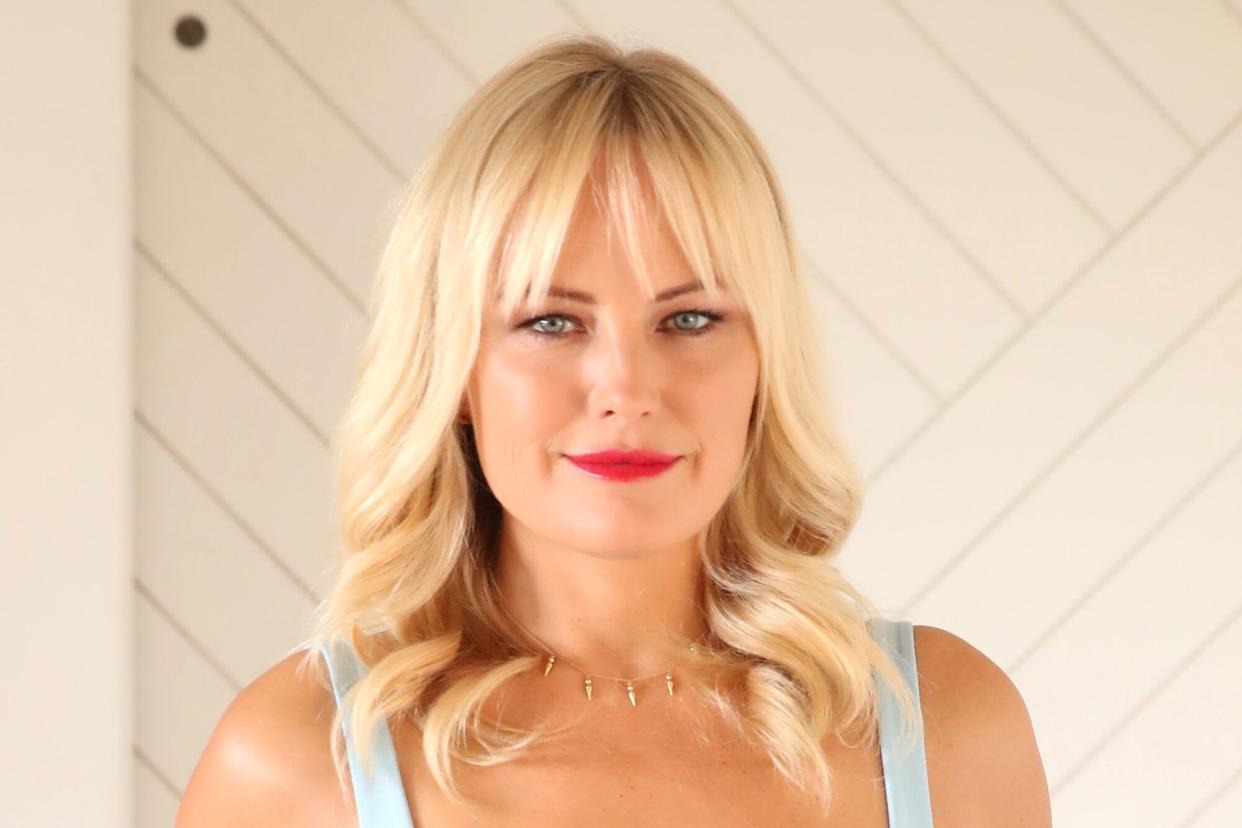Malin Akerman Opens Up About the Challenges of Her Mother's Depression Growing Up

- Oops!Something went wrong.Please try again later.
Getty Images
Malin Akerman is known for her roles in 27 Dresses, The Heartbreak Kid, and Harold & Kumar Go to White Castle — but before she became an actor, Akerman had a different plan.
"[Children's mental health] has been a longtime passion of mine," Akerman tells Shape. "In university, I actually studied psychology to become a child psychologist, and that never came to fruition, but here we are," says the actress. She recently partnered with On Our Sleeves, a non-profit focused on providing tools and resources to destigmatize discussions about children's mental health. "I feel like this has always been a big issue, and now more than ever," she adds.
Related: The U.S. Is Facing a Youth Mental Health Crisis, the Surgeon General Has Warned
Akerman understands the value of talking about mental health within families from firsthand experience. "My mother has struggled with manic depression her whole life," shares Akerman. "As a kid, growing up with a mom who was depressed and not talking about it [or] understanding it was very confusing."
There weren't as many resources or opportunities to be open and honest about mental health at that time, she explains. "I wish that we had open dialogue about it; I wish she had the tools to talk about it back then," says Akerman. "We could have gone to someone, and I would have had support. That, I think, stuck with me," she adds.
Related: 5 Ways to Support a Loved One Struggling with Depression
Now, Akerman and her mom are able to talk openly about mental health. "She is working on it and it's wonderful, and there's no stigma around it," she explains. "But it was hard to break that ice between us and really start talking about it and the affect it had on our relationship. We've really come together and mended."
By destigmatizing conversations about mental health issues, people have the opportunity to realize they're not alone, and the value of this is enormous for both adults and children. "We all look to be accepted by groups and be part of something — that's humanity," says Akerman. "When you start talking about mental health and someone else goes 'oh, me too' or 'my mom too', then all of a sudden that's normalized," she continues.
"You don't feel like you're on the outside," adds Akerman. "You don't feel like there's something wrong with you. It's part of the conversation; it's part of life, and there's nothing wrong with it," she says. "Because when anybody — kids or adults — feel like they're on the outside, or they're not 'normal', whatever that means, it's so hard," she adds, noting she's "so happy" to see the stigma around mental health being broken.
As a mother herself, Akerman has witnessed progress in the societal normalization of mental health issues. "I have a boy, and he's so full of feelings and talks about them openly and freely, and it's so wonderful to see," she says. "I really hope that it's a sign that this next generation that we're raising is [benefitting from us] having the conversations and asking them how they're feeling and that this is really going to shift the way they grow up," she continues. "We're cutting off the intergenerational patterns we've had through time because our parents didn't have the tools to talk about it."
While things are improving, there are still barriers to mental health care for many. For those who live in places or communities where mental health stills feels like a taboo topic, Akerman has a bit of advice.
"Be brave enough to be radical," she says. "Be the one to start the conversation. See what happens," she continues. "There are so many resources online, there are call centers, there are help centers," she adds, sharing that the On Our Sleeves website is a great place to start.
Related: Accessible and Supportive Mental Health Resources for Black Womxn
As for the advice Akerman follows herself? Take time to nurture your own mental health. For the actress, self-care practices are key to feeling good mentally and physically.
"I exercise and I meditate," she tells Shape. "I always try to carve out at least 10 to 20 minutes a day for myself. Whatever that is. If I need to sit and stare at a wall for 20 minutes, then I do that. If I need to go grab a cup of tea and just listen to music, then that's great," says Akerman, advising others to do the same if they are able.
"You put it in your schedule and you stick to it," she suggests. "I notice when I don't do it I get quite frazzled."

